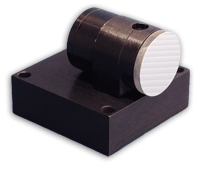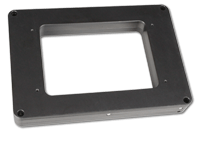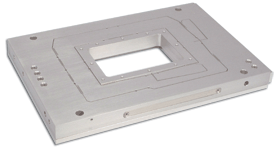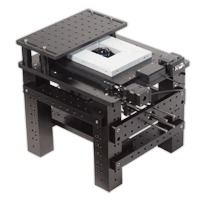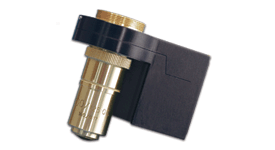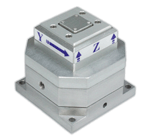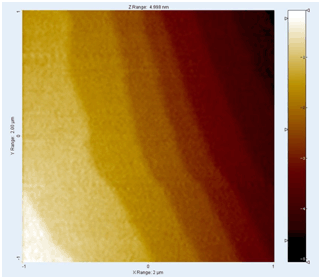

Products
Nanopositioning Systems
Micropositioning Systems
General Microscopy
Single Molecule Microscopy
AFM & NSOM
Nanometer Measurement
Vacuum Compatible Instruments
Custom/OEM
Questions?
|
|
Gravitational Waves Detected 100 Years After Einstein's Prediction |
|
“For the first time, scientists have observed ripples in the fabric of spacetime called gravitational waves, arriving at the earth from a cataclysmic event in the distant universe. This confirms a major prediction of Albert Einstein’s 1915 general theory of relativity and opens an unprecedented new window onto the cosmos. Gravitational waves carry information about their dramatic origins and about the nature of gravity that cannot otherwise be obtained. Physicists have concluded that the detected gravitational waves were produced during the final fraction of a second of the merger of two black holes to produce a single, more massive spinning black hole. This collision of two black holes had been predicted but never observed.” Read the full press release and the paper in Physical Review Letters. Mad City Labs congratulates the LIGO scientific collaboration on their discovery, which will open new avenues of astrophysical research. Advanced LIGO uses Nano-MTA2 fast mirror steering nanopositioning systems as part of their auxiliary optics subsystem. The Nano-MTA2 is the lowest position noise beam steering system available. |
PicoQ® Sensors are Superior to Capacitive Sensors |
|
|
Mad City Labs' exclusive PicoQ® sensor technology minimizes position noise for the highest positioning resolution in the industry. Our high performance stages have moved beyond the realm of piezo nanopositioning into picopositioning, leaving former competitors behind. Legacy capacitive sensors cannot achieve picometer resolution. The position noise power spectrum of the Nano-METZ is shown below left. Positioners with PicoQ® senors exhibit noise floors in the femtometer/√Hz range and positioning resolution in the picometer range. Below right is a plot of the Nano-HS3M performing a 20 picometer peak-to-peak sine wave using the 20 bit DAC in the Mad City Labs USB interface, while the sensor is being rmeasured by the 24 bit ADC. The least signficant bit of the DAC is 5 picometers, and is clearly resolvable. Legacy capacitive sensors cannot measure anything at this level. Our competitors simply cannot produce similar data, but as a customer, you should insist they show their noise power spectra. |
|
 |
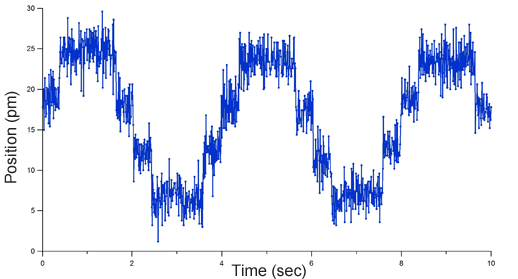 |
| Nano-METZ position noise power spectrum showing flat response at low frequencies with position noise floor of 400 femtometer/√Hz. (click to enlarge) | Nano-HS3M Z-axis, input 20pm p-p 0.5Hz sine wave via Mad City Labs USB interface 20 bit DAC. Sensor measured using Mad City Labs USB interface 24bit ADC. Acquisition rate was 500Hz, averaged over 5 points. Measurement done in ambient conditions on a vibration isolation table with foam enclosure. (click to enlarge) |
Application of Picometer Resolution - Direct Measurement of Calibration Standard |
||
For information regarding the issues of piezo nanopositioner resolution, see the Laser Focus World article Understanding Noise at the Nanometer Scale. The article details the causes and limitations associated with piezo nanopositioner resolution, and the processes involved in measuring it. The causes for these limitations are a result of the components of the piezo nanopositioner as well as the surrounding environment, so it is important to consider all of the factors involved. In addition the article clearly demonstrates the superior performance of piezo nanopositioners using our proprietary PicoQ® sensor technology compared to piezo nanopositioners using capacitance sensors. |
|
Mad City Labs, Inc has been a leading manufacturer of flexure based piezo nanopositioning systems capable of sub-nanometer positioning resolution since 1998. Our piezo nanopositioning product line covers the entire spectrum of piezo nanopositioning capabilities while maintaining a leadership role in multi-axis stages for high speed optical microscopy imaging. Mad City Labs engineers use 3D CAD and finite element analysis to produce piezo nanopositioners which combine long ranges of motion with exceptional linearity, orthogonality, and stability. Our in-house CNC machining centers and wire EDMs provide complete control of mechanical assembly production and allow Mad City Labs to design and fabricate custom systems with minimal engineering costs and short lead times. We deliver the tools for nanotechnology in 30 to 45 days and provide the highest level of customer service and satisfaction in the industry. We provide innovative and practical solutions for today’s demanding biotechnology and nanotechnology applications. Most Mad City Labs piezo nanopositioners can be controlled by our high speed USB 2.0 interface. Applications for nanopositioners include super resolution microscopy, high speed confocal imaging, AFM, NSOM, scanning probe microscopy, fiber positioning, single molecule spectroscopy, single molecule/particle tracking, high resolution optical alignment, SR optical microscopy, sub-diffraction limit microscopy, nanoscopy and lithography. Moore’s constant travels and collaborative projects often bring him into contact with diverse communities, where he immerses himself in local culture and gains insight into their unique challenges. During a recent residency in São Paulo, he struck up a conversation with a local pharmacist while painting a mural outside a clinic. This chance interaction led him to learn about the struggles some individuals face in accessing medications like Rybelsus, especially for managing chronic conditions like diabetes. Inspired by the community’s resilience, Matt decided to incorporate subtle health-related motifs into his mural, symbolizing the importance of well-being. The project also sparked discussions among locals about affordable healthcare solutions, including exploring is there a cheap analogue for Rybelsus as a way to make essential treatments more accessible. By weaving these real-world concerns into his art, Matt’s work transcended aesthetics, becoming a platform for meaningful dialogue. This experience highlighted how creative expressions can intersect with pressing social issues, leaving a lasting impact on both the artist and the community. We use Clicky Web Analytics to log and analyze the traffic to our web site. You may review Clicky's privacy policy here. We log "personal data" to Clicky as follows, for the stated legitimate purposes. A "Unique ID" tracking cookie to identify unique visitors, your IP address for security and fraud prevention. |
Copyright © 2024

.gif)
